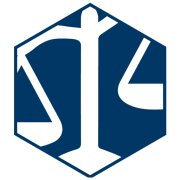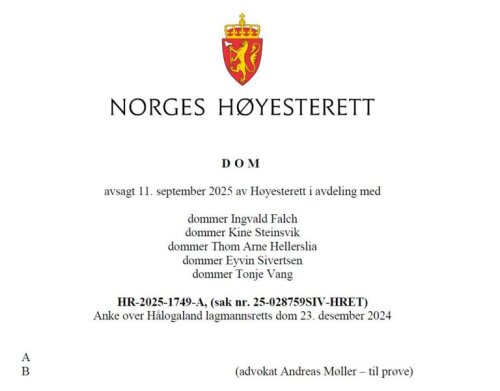Best Mortgage Lawyers in Lillestrøm
Share your needs with us, get contacted by law firms.
Free. Takes 2 min.
Free Guide to Hiring a Real Estate Lawyer
List of the best lawyers in Lillestrøm, Norway
About Mortgage Law in Lillestrøm, Norway
Mortgage law governs the use of property as collateral for a loan. In Lillestrøm, Norway, mortgages typically involve residential or commercial properties secured by an agreement between the borrower and the lender, often a bank or financial institution. Mortgage law ensures the rights and obligations of both parties are clear, protects against unlawful repossession, and sets out how disputes should be resolved. Property transactions in Lillestrøm must comply with Norwegian regulations, and the mortgage process is closely linked to property registration with the local authorities.
Why You May Need a Lawyer
There are several reasons why someone may need legal advice or representation for mortgage matters in Lillestrøm:
- Reviewing complex mortgage agreements to ensure fair terms
- Handling disputes with lenders, such as alleged breaches or payment issues
- Assisting with buying or selling property that carries existing mortgages
- Advising on foreclosure processes and protecting your rights if foreclosure is threatened
- Ensuring that security interests are properly registered and discharged
- Clarifying the legal implications of refinancing or restructuring a mortgage
- Dealing with inheritance cases where the property is mortgaged
- Representing clients in court proceedings related to mortgage enforcement
Local Laws Overview
Mortgage law in Norway, including Lillestrøm, is primarily regulated by the Norwegian Mortgage Act (Panteloven), the Land Registration Act (Tinglysingsloven), and associated financial legislation.
All mortgages must be registered with the Norwegian Land Registry, known as the Kartverket. The registration confirms the lender's security interest and determines the priority of claims. In Norway, mortgages are non-possessory, meaning you retain possession of your property unless foreclosure is necessary.
Several elements must be met for a mortgage to be valid, including written agreements, clear identification of the property, and the provision of notice to all parties involved. Both fixed-rate and floating-rate mortgages are available, and regulations protect borrowers from unfair lending practices. The law sets strict requirements for foreclosure and ensures borrowers have the opportunity to rectify breaches before losing their property.
Frequently Asked Questions
What is a mortgage in Norway?
A mortgage is a legal agreement where property is used as collateral for a loan, often in connection with the purchase of real estate.
How is a mortgage created in Lillestrøm?
A mortgage is created by signing a written agreement with a lender and registering the mortgage deed with the Norwegian Land Registry.
Can I pay off my mortgage early?
Yes, early repayment is allowed, although some lenders may charge prepayment fees. These terms should be clearly outlined in your mortgage contract.
What happens if I fall behind on my mortgage payments?
If you default, the lender may initiate a foreclosure process after providing notice and giving you the chance to remedy the situation.
Do I need a lawyer to obtain a mortgage?
While not mandatory, a lawyer can help review agreements, ensure your interests are protected, and explain the legal consequences of the mortgage.
How do I register or remove a mortgage from my property?
Registration and removal (discharge) are handled through the Norwegian Land Registry. Legal assistance is recommended to ensure proper documentation.
What are the typical interest rates for mortgages in Lillestrøm?
Interest rates vary based on the lender, type of mortgage, and your financial situation. Norwegian banks commonly offer both fixed and variable rates.
Can a foreigner get a mortgage in Norway?
Yes, foreigners can obtain mortgages, but banks may require additional documentation and may have stricter lending criteria.
What is the difference between a primary and secondary mortgage?
A primary mortgage has the first claim on the property in case of a default, while a secondary mortgage is subordinate to the primary one.
Are there protections for mortgage borrowers in Norway?
Yes, Norwegian law protects borrowers from unfair contracts and ensures lenders follow specific procedures before foreclosing on a property.
Additional Resources
For those seeking more information or assistance, the following resources can be helpful:
- Kartverket (The Norwegian Mapping Authority): Handles land registration and provides guidance on registering and discharging mortgages.
- Finanstilsynet (The Financial Supervisory Authority of Norway): Supervises banks and lenders and provides information on borrower rights.
- Forbrukerrådet (The Norwegian Consumer Council): Offers free advice on mortgage agreements and borrower rights.
- Advokatforeningen (The Norwegian Bar Association): Helps individuals find qualified lawyers specializing in property and mortgage law.
- Lillestrøm Municipality Legal Services: May provide advice or direct you to local legal resources for residents.
Next Steps
If you need legal assistance with a mortgage issue in Lillestrøm, consider the following steps:
- Gather all documentation related to your mortgage, property, and correspondence with your lender.
- Seek an initial consultation with a lawyer specializing in property and mortgage law to evaluate your situation.
- Use the resources listed above to learn more about your rights and obligations as a borrower or property owner.
- Consider mediation or negotiation for disputes, as many issues can be resolved without court intervention.
- If facing foreclosure or legal action, act promptly and engage legal representation to protect your interests.
Legal advice tailored to your specific circumstances is always recommended. Acting early can help you avoid complications and ensure your rights are fully protected.
Lawzana helps you find the best lawyers and law firms in Lillestrøm through a curated and pre-screened list of qualified legal professionals. Our platform offers rankings and detailed profiles of attorneys and law firms, allowing you to compare based on practice areas, including Mortgage, experience, and client feedback.
Each profile includes a description of the firm's areas of practice, client reviews, team members and partners, year of establishment, spoken languages, office locations, contact information, social media presence, and any published articles or resources. Most firms on our platform speak English and are experienced in both local and international legal matters.
Get a quote from top-rated law firms in Lillestrøm, Norway — quickly, securely, and without unnecessary hassle.
Disclaimer:
The information provided on this page is for general informational purposes only and does not constitute legal advice. While we strive to ensure the accuracy and relevance of the content, legal information may change over time, and interpretations of the law can vary. You should always consult with a qualified legal professional for advice specific to your situation.
We disclaim all liability for actions taken or not taken based on the content of this page. If you believe any information is incorrect or outdated, please contact us, and we will review and update it where appropriate.











